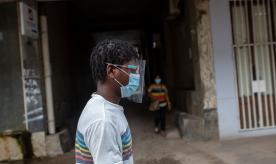Beliefs and behaviours towards COVID-19 in Mozambique
There is considerable uncertainty around the current state and future developments of the COVID-19 crisis in Mozambique, both for health outcomes as well as economic and social outcomes. As in many sub-Saharan African (SSA) countries, measures such as imposed lockdowns are likely to be particularly challenging and even counterproductive in the face of fragile livelihoods.
It is important to ensure the population correctly understands, internalises, and adopts the best practices to prevent and limit contagion, while minimising impacts on economic activity. Pre-existing beliefs and mental models are likely to influence the way individuals perceive these recommendations (Kremer et al. 2019).
We claim that reaching a better understanding of the interplay between traditional beliefs and available information around COVID-19 will provide crucial insights to design policies with which the population is most likely to comply. Traditional medicine and spiritual healing are relevant and widespread in Mozambique. A survey of Pew Research Center (2010) in 19 SSA countries found that in Mozambique 32% of people believe in the evil eye; 26% believe in the protective power of shrines; and 24% report having visited a traditional healer.
This research will provide new evidence on how traditional beliefs influence the perception of the COVID-19 emergency and the adoption of recommended behaviours.



